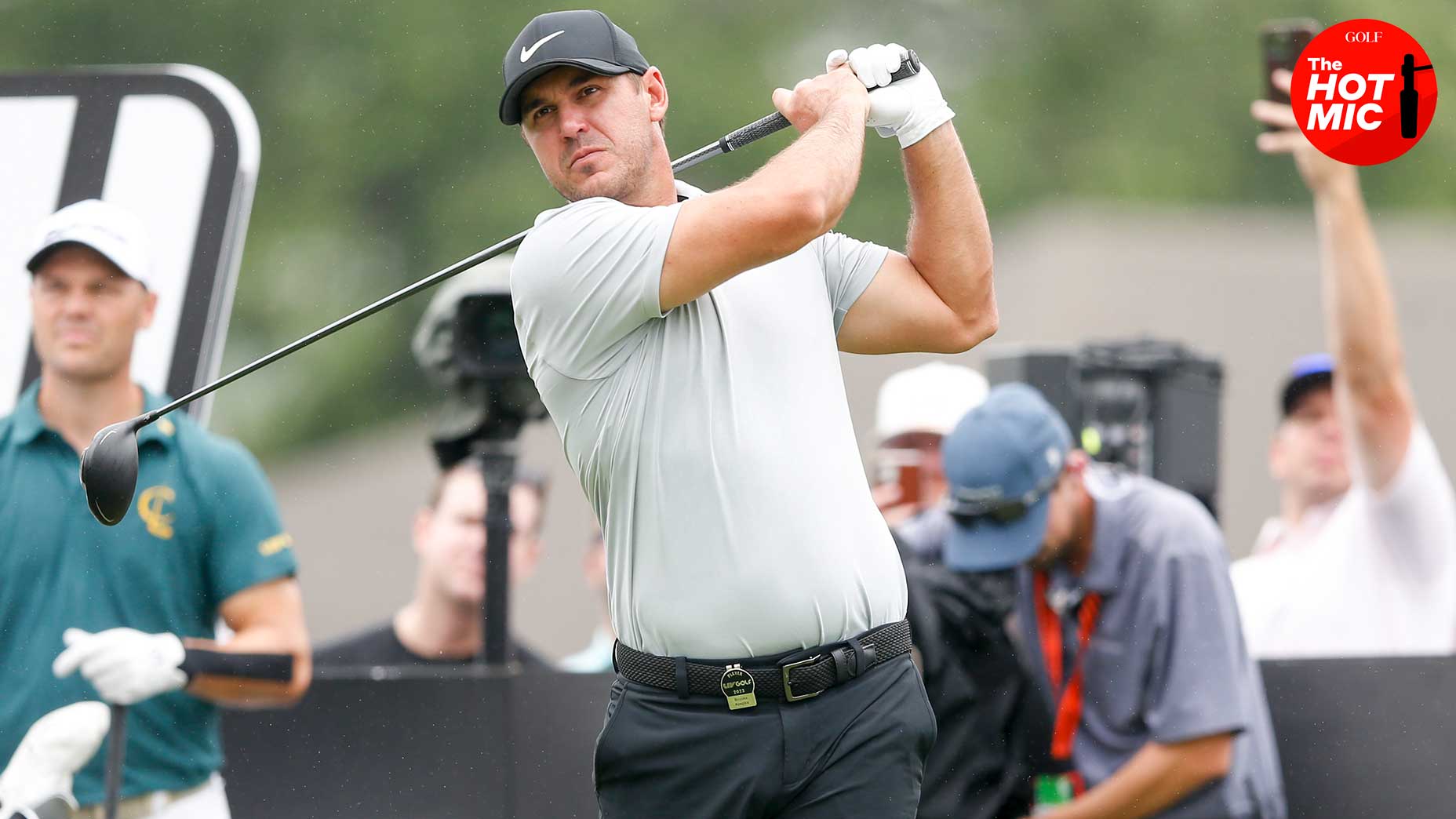LIV Golf is headed back to YouTube.
Less than six months after signing a media rights agreement with the CW, LIV announced Friday that it has created a new, pay-per-view broadcast option to run on YouTube. The PPV broadcast will cost $3 per tournament day, LIV said in a release announcing the decision, and will run in addition to the league’s agreement with the CW.
A LIV source indicated that the CW is aware of the decision to introduce a pay-per-view model, and that the decision does not violate any of the league’s preexisting broadcast agreements. The hope for LIV is to grow off the success first seen on YouTube in 2022, where the league attracted tournament audiences of several hundred-thousand views in the U.S. and abroad. The league already has its own direct-to-consumer subscription platform, LIV Golf Plus, which the PPV channel will run counter to. LIV broadcasts will continue to be streamed for free on the CW app.
The announcement comes on the heels of a rocky few weeks for the Saudi-backed upstarts and their first-time sports broadcast counterparts. At LIV’s last event in Tulsa, CW affiliates in many major markets dropped the league’s broadcast minutes before a three-way playoff featuring Cam Smith and Dustin Johnson began; opting instead for Sunday evening news shows or sitcom reruns. That decision came after weeks of radio silence from the CW or LIV about the league’s broadcast ratings, which had dipped some 24 percent from the season-opening broadcast in Mayakoba to the second tournament in Tucson before the two parties stopped reporting.
In the absence of reliable viewership data, it’s hard to say how LIV’s performance is being interpreted internally and within the CW. The two parties are believed to be operating under a revenue share in 2023, with potential escalators based on the league’s performance. But ad revenue is tied to viewership, and lagging efforts in that regard could have contributed to the curious timing of LIV’s decision, which comes just past the halfway point of the league season.
At any rate, the decision to launch a direct-to-consumer platform comes at a time in which many sports leagues and networks are attempting to do the same. At last week’s upfront ceremonies — an annual presentation networks give to advertisers to entice spending — ESPN announced that it would launch its own direct-to-consumer network in the coming months. That effort, which will essentially allow viewers to subscribe directly to ESPN rather than pay for it as part of a cable or streaming package, represents the latest frontier in an effort to regain lost viewership in the streaming age. On the league side, the NFL’s subscription service, NFL+, is seen as the gold standard for its ability to entice subscriptions from viewers who already pay the league for access to nationally televised games and NFL-licensed services like the Redzone Channel.
In short, it’s good business for leagues and networks to diversify revenue streams, particularly as viewers continue to flock towards alternate viewing options. And it’s particularly good business for LIV, which has struggled to wrangle revenue streams of any kind in the year since its launch. To date, the league has struggled to find title sponsors for its tournaments, individual sponsors for players, or any of the team-specific sponsorships that were believed to be a key element of the league’s long-term plans.
While questions remain if the direct-to-consumer effort will deliver bottom-line impact, there’s little doubting YouTube’s fit as a LIV partner. It was the home to LIV’s broadcasts during its first “beta test” season in 2022 and generated several million total views for the league in that time.
Now LIV will confront a challenge faced by many internet content creators in the 21st century: getting viewers to pay money for a product they’re used to receiving for free.
